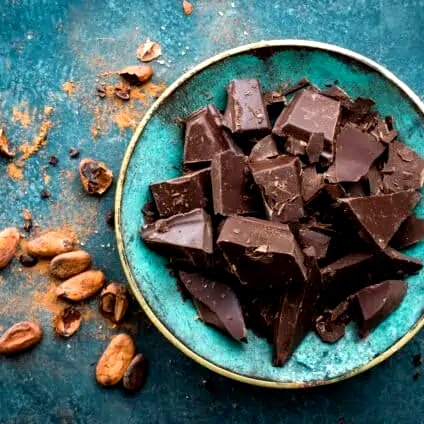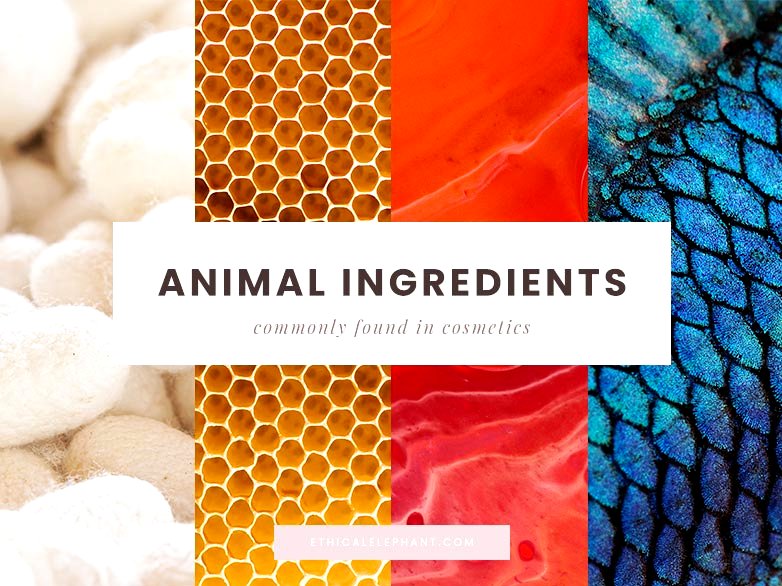Vegans with a sweet tooth often find the question of the veganism of dark chocolate confusing and its answer uninformative. Addition of various non-vegan friendly ingredients can further complicate matters; but fret not: we have taken it upon ourselves in this comprehensive guide to delve into everything there is to know about dark chocolate's compatibility with veganism.
Dark chocolate, an exquisite treat, consists primarily of cocoa solids, velvety cocoa butter and sugar. As cocoa solids content varies with dark chocolate varieties, higher percentages may require less sugar for sweetness. Although widely popular, non-vegan dark chocolate products could include milk powder or whey powder additions that make dark chocolate products non-vegan products.
So we come back to the core question of dark chocolate's vegan status: is it vegan or not? Our research will include taking into account any added ingredients like dairy products, bone char-refined sugar or animal components which could make dark chocolate non-vegan.
Additionally, we will proudly showcase and highlight some of the finest vegan-friendly chocolate brands renowned for ethical and sustainable production methods - making your indulgence guilt-free! Whether newcomer or experienced in veganism alike, understanding dark chocolate's intricacies is crucial in making informed choices and we shall unearth whether your go-to dark chocolate brand is actually vegan!
I. What Makes Dark Chocolate Non-Vegan?
Dark chocolate, an irresistibly satisfying treat that vegans enjoy, may not always be vegan-friendly due to varying brand additions of animal-derived ingredients such as milk powder and whey powder to increase palatability and texture.
Milk powder, a desiccated milk commodity, is often added to commercial dark chocolate to increase gustatory and tactile experiences. Whey powder from cheese production also serves as a milk surrogate in some dark chocolate brands; both substances can transform vegan dark chocolate into something sinfully non-vegan.
Milk powder and whey powder both come from cow's milk and, thus, do not fit within the definition of veganism. While milk chocolate often includes these two ingredients, many dark chocolate brands now also contain them, so dark chocolate enthusiasts must carefully inspect product labels when purchasing dark chocolate items to determine whether their chocolate treat contains animal-derived components that could compromise veganism. class="instagram-media" style="height:500px" data-instgrm-version="14">
Identifying Vegan-Friendly Dark Chocolate
But how does one identify vegan-friendly dark chocolate? One simple way is to look for brands that explicitly state they are vegan-friendly products. Checking ingredient lists may also provide valuable clues; for instance if animal-derived ingredients like milk powder or whey powder appear alongside other ingredients it could suggest the chocolate may not be vegan-friendly.
Modern consumers have access to many vegan-friendly dark chocolate options for animal-lovers who appreciate chocolate. Brands such as Endangered Species Dark Chocolate, Green & Black's Organic Dark Chocolate and Theo Chocolate offer vegan dark chocolate products without dairy and any animal derivatives.
The Health Benefits of Vegan Dark Chocolate
Vegan dark chocolate brings many benefits for both animals and cardiovascular health. Due to being high in saturated fats, milk powder and whey powder could put the heart at risk; on the contrary, opting for vegan-friendly dark chocolate with a higher cocoa percentage can bring health advantages by way of its abundance of antioxidants and flavonoids that have potential anti-inflammatory effects in your body.
Selecting vegan-friendly dark chocolate helps support ethical and sustainable production methodologies while simultaneously decreasing demand for animal-derived products. By opting for these options, vegan dark chocolate consumers demonstrate conscious efforts towards reducing their environmental footprint while simultaneously supporting ethical businesses that uphold sustainable production methodologies.
Milk powder and whey powder disqualify dark chocolate as vegan-friendly, making it essential to read ingredient labels carefully in order to consume vegan-friendly brands that support animal rights as well as promote sustainable production methods, potentially unlocking additional health benefits.
II. The Importance of Sugar Refining
Sugar, an integral ingredient of chocolate, undergoes a refining process that automatically disqualifies it from veganism. This involves the utilization of bone char, an animal by-product found in powdered or granular form from cattle bones, in order to remove impurities from its composition and create whiter sugar crystals. However, any production using bone char does not meet vegan standards because its use nods towards the use of animals for production purposes - leading to strong criticism among vegan activists who consider its use within their consumption guidelines - meaning conscious vegans avoid taking part in its consumption altogether.
Bone char-refined sugar has several alternatives on the market. Organic and fair trade chocolate brands often utilize alternative agents that differ from bone char when refining sugar for production purposes, including activated charcoal which undergoes heating to create porosity for use as an impurity remover during sugar refinement processes - thus offering more sustainable options than bone char while simultaneously guaranteeing a more environmental production process.
Resins have also become a common substitute for bone char in sugar refining processes, with Amberlite and Dowex varieties serving as impurity ridders. Organic and fair trade chocolate brands have significantly decreased their usage of these alternatives in their refining process, becoming a vegan-friendly favorite with consumers such as Alter Eco, Equal Exchange and Endangered Species Chocolate brands in particular.
Consideration must be given to the environmental implications of chocolate production, beyond sugar refining alone. Cocoa farming remains an extremely harmful contributor to forest destruction; thus highlighting why supporting organic and fair-trade chocolate brands helps minimize their environmental footprint while supporting more ethical production processes.
Overall, bone char-inclusive sugar does not meet vegan standards, while activated charcoal and resins offer vegan-friendly refinement methods in sugar refinement. When selecting chocolate brands it remains wise to examine labels carefully for information regarding refining methods as this could contribute towards ethical production processes with potential environmental benefits that help limit environmental degradation.
III. Other Animal-Derived Ingredients
Not all dark chocolate is non-vegan; other animal-derived ingredients could also be hidden within it.
Honey
One such ingredient is honey - often used to sweeten chocolate, this golden nectar adds its own distinctive taste and brings something different. But since honeybees produce it, its consumption contradicts vegan principles.
Beeswax
Beeswax is another animal-derived ingredient to watch out for, often added as a coating in chocolate to give it an appealing surface and shine. Unfortunately, however, beeswax can often be difficult to detect; in some instances even manufacturers hide its presence so well it becomes practically invisibile!
Confectioner's Glaze
Confectioner's glaze adds an eye-catching shine to chocolate treats, made from the female lac bug's secretions - this ingredient should not be included as part of vegan diets!
To effectively avoid non-vegan ingredients, it is vital that customers read ingredient lists closely. Not all chocolate brands offer similar protection from non-vegan ingredients; some may intentionally include them without notifying customers beforehand.
One possible solution is to seek out vegan chocolate companies that don't use honey, beeswax and confectioner's glaze in their products - such as Endangered Species Dark Chocolate brand which offers Bug Bites as a vegan-friendly option without confectioner's glaze.
As a vegan seeking dark chocolate treats, it is critical that you closely examine the packaging's ingredients list to avoid animal-derived substances like honey, beeswax or confectioner's glaze - and don't hesitate to reach out if there are any doubts! Reading labels should become part of every vegan's routine in order to support an eco-friendly and ethical consumption lifestyle.
IV. Health Benefits of Dark Chocolate
Dark chocolate makes an irresistibly delicious treat and also boasts numerous health benefits for both mind and body. By choosing dark chocolate as part of your sweet indulgence, not only are you enjoying its delectable taste but you are providing your cells with antioxidants and flavonoids, protecting them from free radical damage.
Health Benefits of Dark Chocolate
Dark chocolate's abundant flavonoids work to regulate blood pressure, increase circulation and improve vessel health; making it an invaluable health booster. Studies have proven that eating dark chocolate in moderation not only lowers your risk for cardiovascular disease but also decreases overall inflammation in the body.
Moderation is Key
But as with anything, moderation is key when it comes to enjoying dark chocolate treats responsibly and healthily. Due to its high caloric and fat content, dark chocolate may cause excessive weight gain if consumed in excess. Therefore, portion control must be maintained by opting for one to two ounces daily.
Find the Right Type of Dark Chocolate
It's also important to indulge in dark chocolate that meets all your criteria, not least being vegan-friendly brands that support ethical production methods and contribute to an eco-friendly chocolate supply chain. By doing so, not only are you taking care of both yourself and the planet by supporting eco-friendly production of chocolate products!
Conclusion
Dark chocolate is indeed an extraordinary health food, boasting numerous proven health benefits. But to fully experience its many wonders and reap all its potential health advantages, it is crucial that we are mindful in our consumption, choosing vegan-friendly and ethically produced options whenever possible. With proper planning of healthy meals and treats you'll still be able to reap its delights while maintaining overall wellbeing.
Learn more about the Health Benefits of Dark Chocolate on Healthline.Conclusion: Savor Vegan Dark Chocolate Without Guilt
As a vegan, you are sure to appreciate the rich and complex flavor that only fine dark chocolate can offer. But as an informed customer, it is crucial that you carefully scrutinize product labels when considering purchasing dark chocolate; otherwise you risk the inclusion of non-vegan ingredients that contribute to its making process - including milk powder, whey powder, bone char-refined sugar, honey, beeswax and confectioner's glaze (even though these components themselves may be plant based).
Vegan chocolate enthusiasts needn't despair: there are a host of vegan-friendly dark chocolate brands that cater to your dietary restrictions and feature detailed ingredient lists and production processes that enable them to enjoy delectable dark chocolate without moral or ethical reservations.
As we make decisions that reflect our values and beliefs, it can have a tremendously positive effect on not only ourselves, but also the wellbeing of the environment and creatures that inhabit it. So make smart choices when selecting vegan-friendly ethically produced dark chocolate treats. Savor every delicious bite without feeling guilty!




